What Kind of Home Air Conditioning Filter is Best?
An air filter acts as a scrubber for the air circulating in your heating and air conditioning system. It may be near the return vents or it may be part of your inside unit. A clean, functioning air filter keeps dust and dirt, pollen, mold and its spores, lint, hair and animal fur and more out of your living spaces. A dirty or clogged filter will force your system to work harder, resulting in higher bills, and eventually, a system that is burnt out long before its time.
Air Filter Ratings
Not all air filters are built and work the same way. Each air conditioning filter is given a MERV rating, or a minimum efficiency reporting value. MERV ratings scale from one to 20, and are helpful in comparing the performance of filters. The higher the rating, the better the filter is at trapping certain particles.
MERV 1-4: Removes pollen, dust mites, cockroach body parts, sanding dust, textile and carpet fibers.
MERV 5-8: Removes mold spores, cat and dog dander, hair spray and dusting sprays.
MERV 9-12: Removes humidifier dust, lead dust, flour and car emissions.
MERV 13-16: Removes bacteria, cooking oil, sneeze droplets, most smoke and insecticide sprays.
MERV 16-20: Removes viruses and smoke.
Filters at and above 13 are used primarily in surgery rooms, hospitals and other regulated environments. Due to the COVID-19 pandemic, many home and residential spaces are also turning to these higher rated filters. While they cannot completely stop the spread of COVID and other airborne viruses, these filters can be effective when combined with other best health practices. Before upgrading, check with an HVAC professional to ensure your system can support a MERV-13 or higher filter; otherwise, your system could experience extra straining and a decrease in efficiency and air quality.
HEPA Filters
You may have seen this abbreviation on all kinds of filters that clean the air. It stands for high efficiency particulate air filter and can theoretically remove at least 99.97% of dust, pollen, mold, bacteria and any airborne particles with a size of 0.3 microns – those are really, really small particles! HEPA filters were born in the gas masks of World War II and since, have spread to all kinds of things that need air filtration, including vacuum cleaners, vehicles and more.
Types of Filter Materials
Just like there are different ratings, air filters are made from many kinds of materials.
Fiberglass: These are the most affordable filters made, but they also catch less particulate matter. They work great for protecting your air conditioning system, but not so great for protecting your respiratory system.
Pleated: These are usually made of polyester fabrics or cotton folds and they’re great at filtering dust and other pollutants. More pleats mean more filtering power.
Washable: Instead of replacing these filters, you can remove and clean them. You have to carefully read the manufacturer’s maintenance instructions.
Electrostatic: Some electrostatic filters are washable and some aren’t. These filters use an electrostatic charge (think when you rub a balloon over your hair and it makes your hair stand on end) to attract dust like a magnet.
Don’t forget to replace your filters
The world of air conditioning filters is vast with many rating scales and material types. Even if you own some of the best filters, your home air quality and HVAC system performance will worsen if the filters become too dirty. If you want to ensure your HVAC system is functioning at its optimal capacity between seasonal tune-ups, one of the easiest steps you can take is regularly changing your air filters. It is generally recommended that you change air filters every one to three months to avoid allergen buildup and other system issues.
Air filter replacement doesn’t have to be a worry for you. As part of the Total Comfort Service Program, we’ll check all your filters and make sure you are good to go. Call our experts at 850.580.4029 for more information about choosing the right filter for your system.




